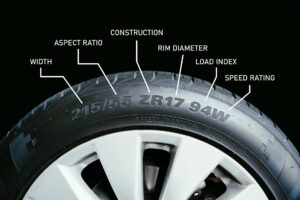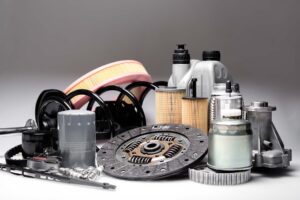Understanding what to do when you get pulled over by the police can significantly reduce the stress and uncertainty of the situation. Whether it’s for a minor traffic violation or not, being prepared can make a significant difference in the outcome of the stop. This guide aims to equip you with essential tips for dealing with traffic stops and help you handle the encounter as smoothly as possible.
What to Do When You Get Pulled Over?
When you get pulled over, it’s important to stay calm, pull over safely to a well-lit area away from traffic, and keep your hands visible. Politely provide your driver’s license, vehicle registration, and proof of insurance when requested by the officer.
Communicate clearly, understand your rights during the stop, and comply with lawful orders while respectfully asserting your rights if necessary. After the stop, review any tickets or warnings issued, and consider seeking legal advice for serious charges. If your rights were violated, reflect on the experience to improve future driving behavior and preparedness for potential stops.
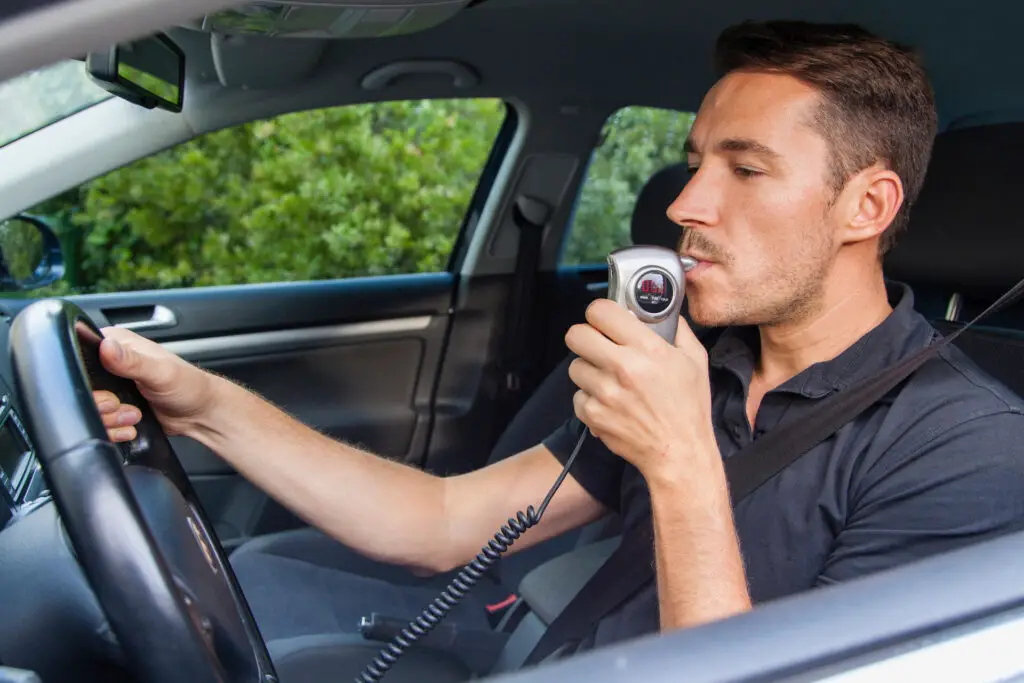
What Will a Police Officer First Ask Once You’re Pulled Over?
On an average day, law enforcement officials conduct traffic stops for over 50,000 drivers, amounting to upwards of 20 million drivers annually. So, preparing for a police encounter is one of the steps in your overcoming driving anxiety journey. When getting pulled over for speeding or any other reason, the first questions you’re likely to encounter aim to establish the basics of the traffic stop.
An officer typically begins by asking for your driver’s license, vehicle registration, and proof of insurance. That way the officer ensures you’re legally authorized to drive and your vehicle is properly documented. Following this, the officer may inquire about the reason you believe you were pulled over, which serves both to gauge your awareness of your driving behavior and to segue into discussing the specific traffic violation observed.
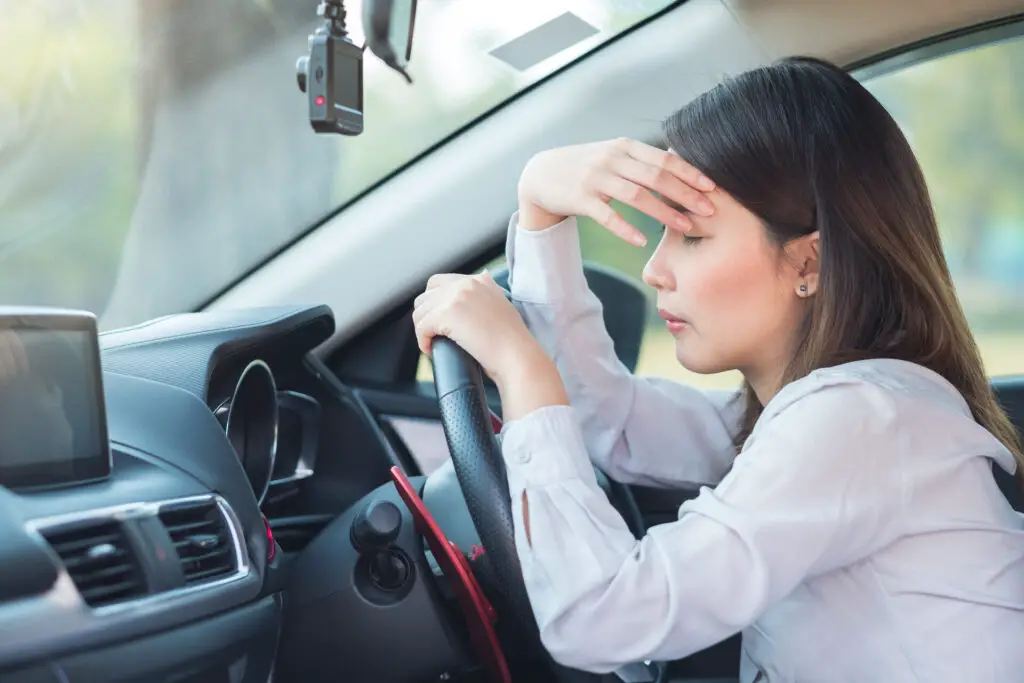
Preparing for the Unexpected – Essential Tips
No driver ever anticipates the moment they see flashing lights in their rearview mirror, signaling that it’s their turn to pull over. Yet, this situation is far from uncommon and can happen for a myriad of reasons, ranging from a minor oversight to more significant traffic violations.
Preparing for the unexpected is not just about adhering to safe driving tips. It’s about equipping yourself with the knowledge and tools to handle these encounters with confidence and calm. Eventually, it will help you become a better driver, too.
Stay Calm and Collected
The importance of remaining calm when you’re pulled over shouldn’t be overstated. Your emotional state can greatly influence your interaction with law enforcement. Staying calm helps you think clearly, communicate effectively, and make rational decisions during the stop.
If you’re experiencing driving stress, no matter whether it’s because you’re in one of the cities with the worst drivers, or you’re a beginner, remaining calm is a must. Anxiety or agitation can be misinterpreted by the officer and potentially escalate the situation. By taking deep breaths and maintaining composure, you signal cooperation and respect, setting a positive tone for the encounter.
Pull Over Safely
Finding a safe spot to pull over is critical for your safety and the safety of the officer. It’s your responsibility as a driver, so here are some tips to ensure you pull over safely:
- First, signal your intent to the officer by turning on your right blinker, and acknowledging their request.
- Slow down gradually, not abruptly, to give yourself and the officer time to find a suitable spot.
- Look for an area that is well-lit and away from moving traffic, such as a parking lot or a wide shoulder on the road.
- Ensure the spot is stable and safe for both vehicles to avoid any additional risks.
- Turn off your engine and wait for the officer to approach, keeping your hands visible to show that you’re not a threat.
Keep Your Documents Accessible
Having your necessary documents accessible is crucial for a smooth interaction during a traffic stop. Ensure you always have the following documents in your four-wheeler:
- Driver’s License – Your photo ID, which proves your eligibility to drive.
- Vehicle Registration – This document shows that your vehicle is legally registered in your name.
- Proof of Insurance – This confirms that you have the minimum required insurance coverage for your vehicle.
Keeping these documents in a specific, easily accessible spot, like a glove compartment or a dedicated holder on your sun visor, can help reduce stress during a stop by allowing you to quickly present them to the officer upon request.
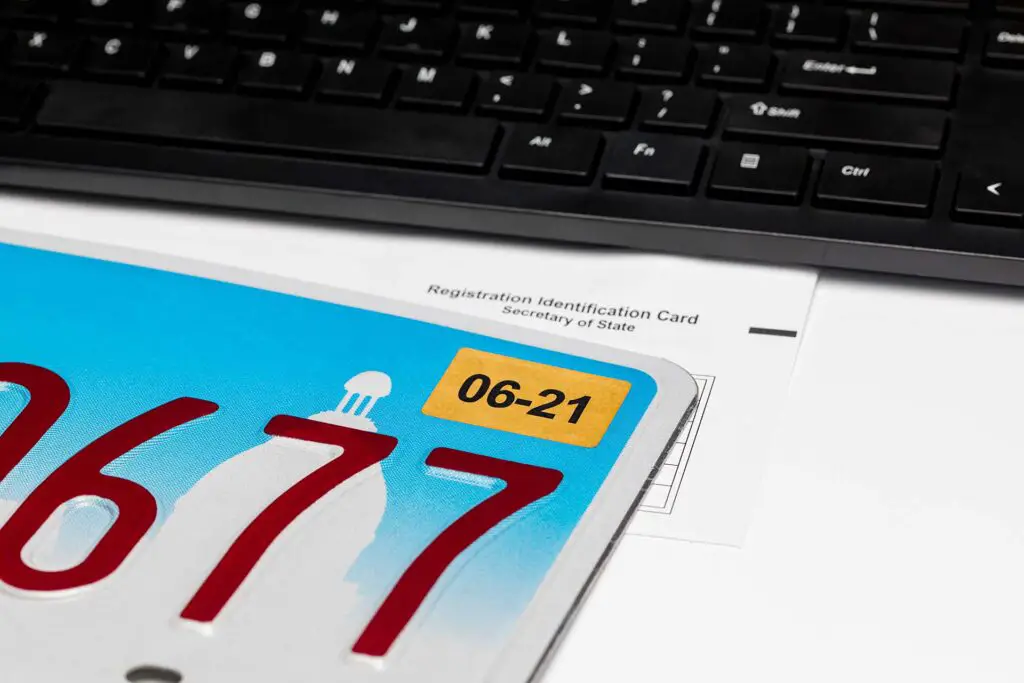
Engaging With Law Enforcement – Do’s and Don’ts
Engaging with law enforcement during a traffic stop can be nerve-wracking, but knowing the do’s and don’ts can significantly ease the process. Potentially, it can influence the outcome favorably. Understand the police stop rights and keep in mind that the key lies in effective communication, understanding your rights, and finding the right balance between compliance and asserting those rights.
Communication Is Key
When speaking to the officer, it’s crucial to be polite and respectful. Of course, making some mistakes on the road surely can build up stress and you naturally wonder what to say when you get pulled over for speeding. Take a deep breath and start by greeting the officer calmly and wait for them to explain the reason for the stop.
It’s advisable to speak clearly and concisely, answering questions to the point. If you’re asked about a violation, such as speeding, it’s often best to avoid admissions but to respond courteously – acknowledging the situation without incriminating yourself. For instance, “I understand, officer. I thought I was keeping with the flow of traffic.” Remember, your attitude and way of speaking can significantly impact the officer’s approach to the situation.
Understand Your Rights
Traffic stop procedures include specific rights designed to protect you. Firstly, you have the right to remain silent – this means you don’t have to answer questions about where you’re going or coming from, or whether you’ve committed a violation.
You also have the right to refuse consent to search your vehicle, although officers can search your car if they have probable cause. It’s important to be aware that you can ask if you’re free to go if the officer continues to detain you without a clear reason.
Rights During a Traffic Stop – Compliance and Cooperation
While it’s vital to know and assert your rights, compliance, and cooperation with law enforcement are equally important. Always comply with basic requests from the officer. For example, ensure you provide your driver’s license, registration, and proof of insurance.
If the officer asks you to step out of the vehicle, do so calmly. However, asserting your rights does not mean confrontation. You can choose to refuse a search or exercise your right to remain silent. Do so in a respectful manner, stating your choice clearly but politely.
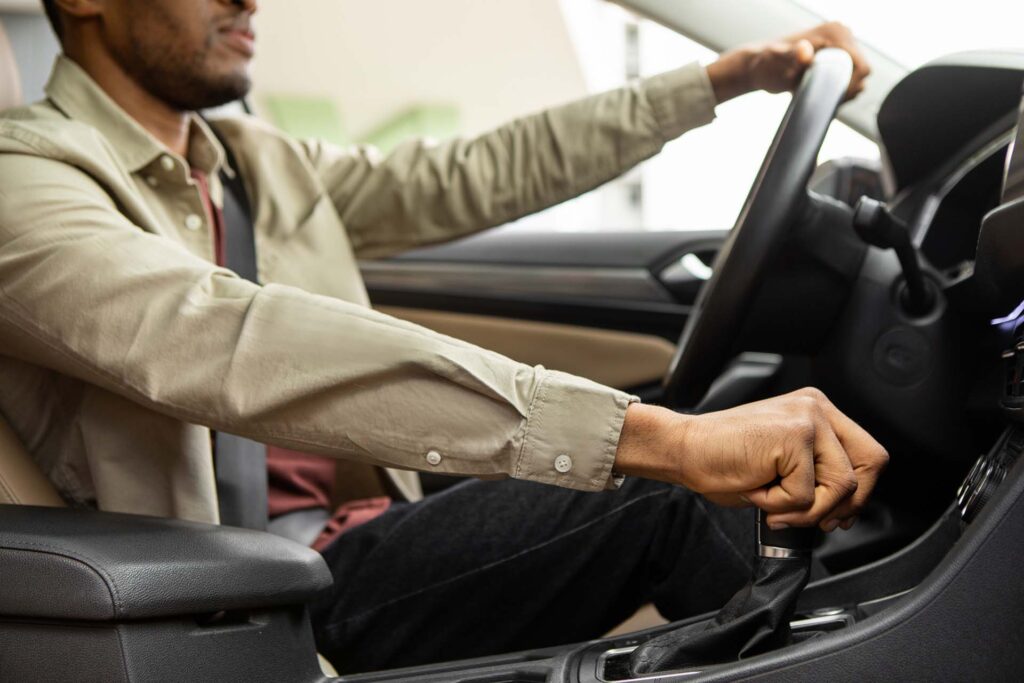
What to Do After the Stop?
The moments after a traffic stop can be as crucial as the stop itself. Whether you’ve received a ticket, a warning, or have been let go, the steps you take next can have significant implications. Understanding how to handle tickets or warnings, the importance of seeking legal advice in certain situations, and the value of reflecting on the experience are all pivotal in turning a traffic stop into a learning opportunity.
Handling Tickets or Warnings
If you’ve received a ticket or warning, the first step is to read it carefully to understand the violation, the fine amount (if applicable), and the due date for payment or contestation. For a ticket, you generally have the option to pay the fine or contest the ticket in court. If you believe the ticket was unjustly issued, gathering evidence – such as photos of the scene, witness statements, or a written account of the event – can be helpful.
Remember, paying a ticket is often considered an admission of guilt, so consider the impact on your driving record and insurance rates before deciding. For warnings, no immediate action is required, but take it as a cue to improve your driving habits to avoid future stops.
Seeking Legal Advice
Legal advice should be considered if you’re facing a serious charge, believe your rights were violated during the stop, or if the consequences of the ticket could be severe. For example, a loss of license, significant fines, or impact on your employment.
A legal professional can guide your rights, the legal process, and whether contesting the ticket is in your best interest. Legal advice is particularly valuable for navigating complex situations, such as disputes over the facts of the stop or when charges are more serious than a basic traffic violation.
Reflecting on the Experience
Reflecting on the experience is a vital step towards personal growth and better preparation for the future. Consider what led to the stop, how you handled the interaction with law enforcement, and what you can do differently in the future.
This reflection can lead to safer driving practices, better awareness of your rights, and improved communication skills. Like reviewing a move in a game, this reflection allows you to plan better for future encounters, ensuring you’re better prepared and more confident if you’re pulled over again.
Each traffic stop offers a unique set of lessons. By handling tickets or warnings appropriately, knowing when to seek legal advice, and reflecting on the experience, drivers can turn an unwelcome event into an opportunity for learning and improvement.

Top Reasons Drivers Are Pulled Over
The sight of flashing lights and the sound of sirens behind a vehicle is an unwelcome experience for any driver. Yet, nearly every driver will experience being stopped by law enforcement at some point. Despite our best efforts, no driver is flawless all the time. However, there are numerous measures you can take to minimize the chances of being stopped and receiving an expensive citation. Besides figuring out what happens when you get pulled over for speeding you should also be aware of some reasons drivers are commonly pulled over.
Speeding is the number one reason drivers find themselves pulled over. Nationwide surveys among law enforcement reveal that targeting speeders is a high priority. It’s crucial to keep in mind that speed limits are not arbitrary; they are the result of thorough research aimed at ensuring your safety. Data indicates that issuing 100 speeding citations each month leads to approximately 14 fewer vehicle collisions and reduces the number of accident-related injuries by five.

Show Confidence During the Police Stops
Being pulled over by law enforcement can be a nerve-wracking experience, but it’s essential to remain calm and cooperative. By knowing your rights, understanding common reasons for being stopped, and practicing safe driving habits, you can minimize the likelihood of being pulled over and receiving a citation. Remember to stay informed about local traffic laws and regulations, and always prioritize safety on the road.

